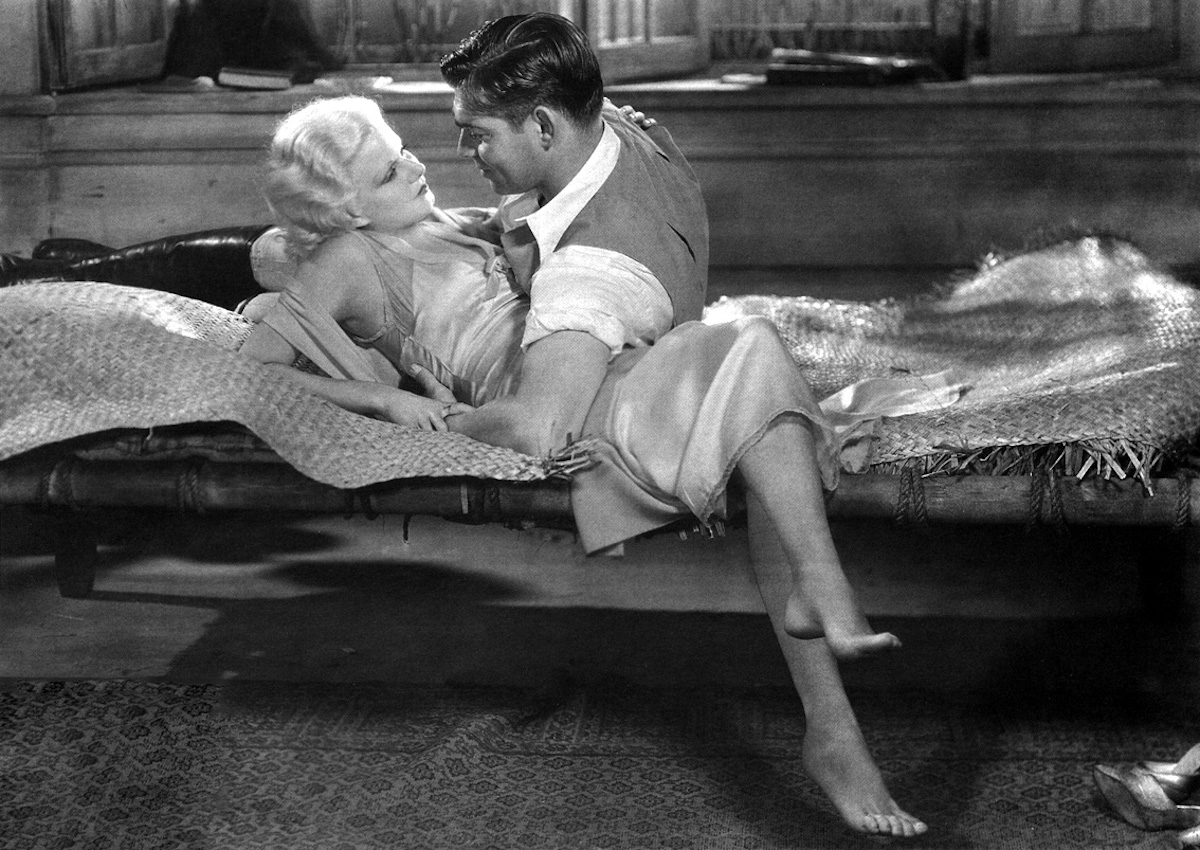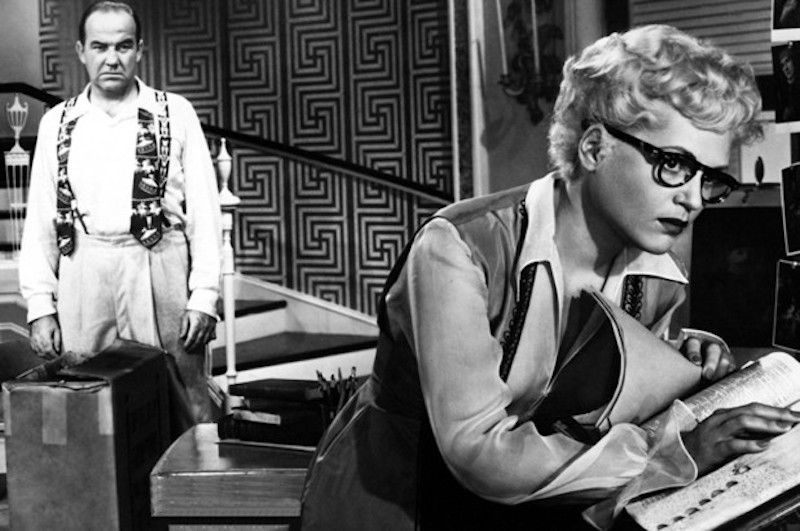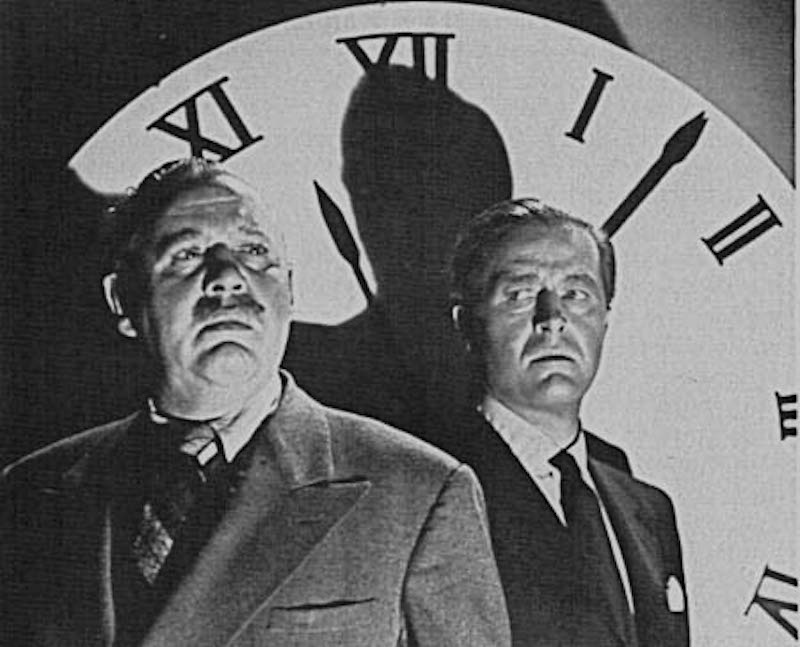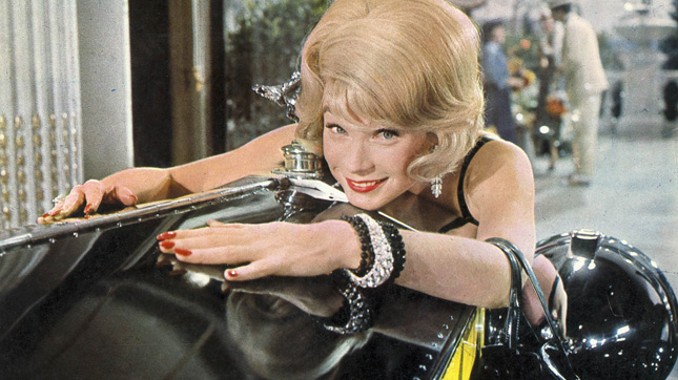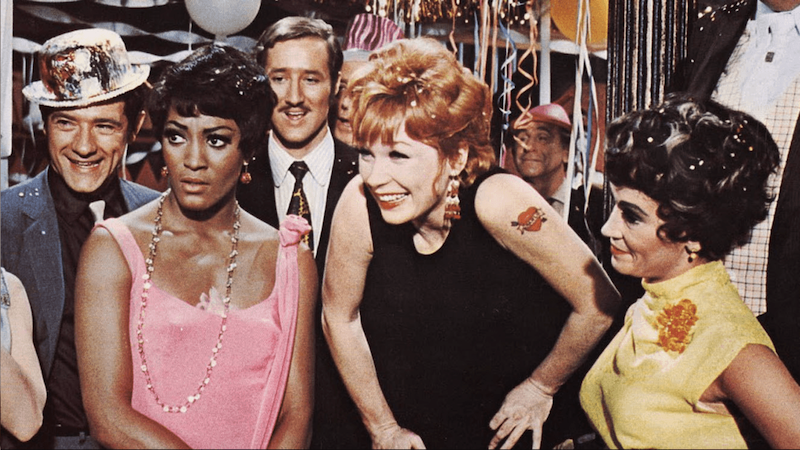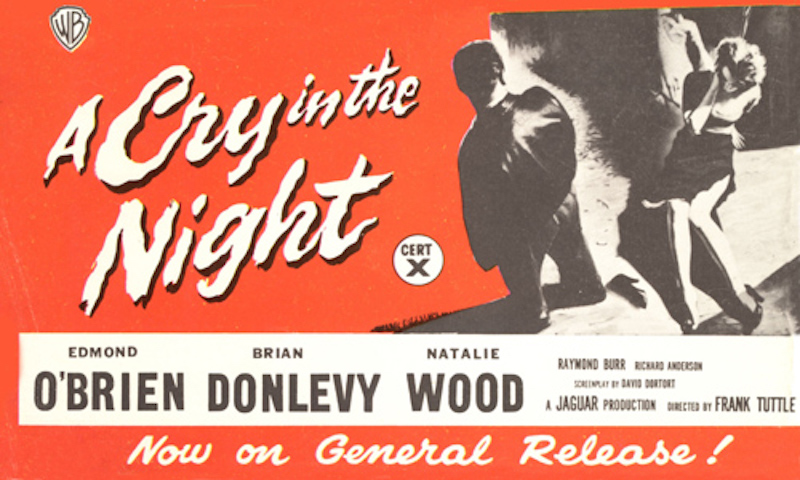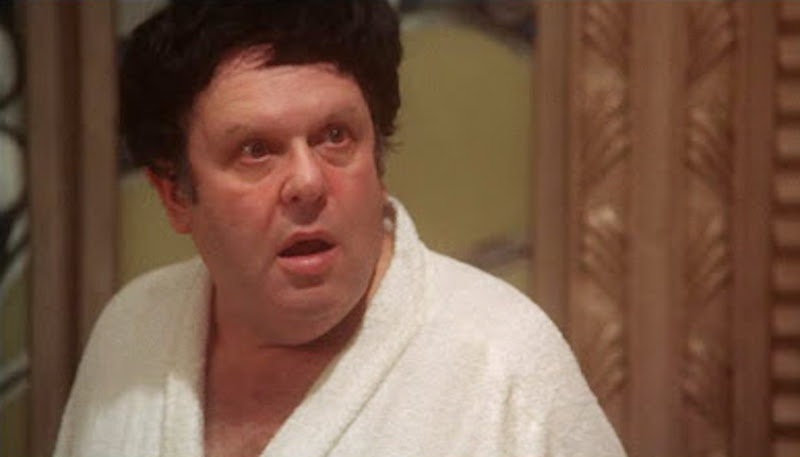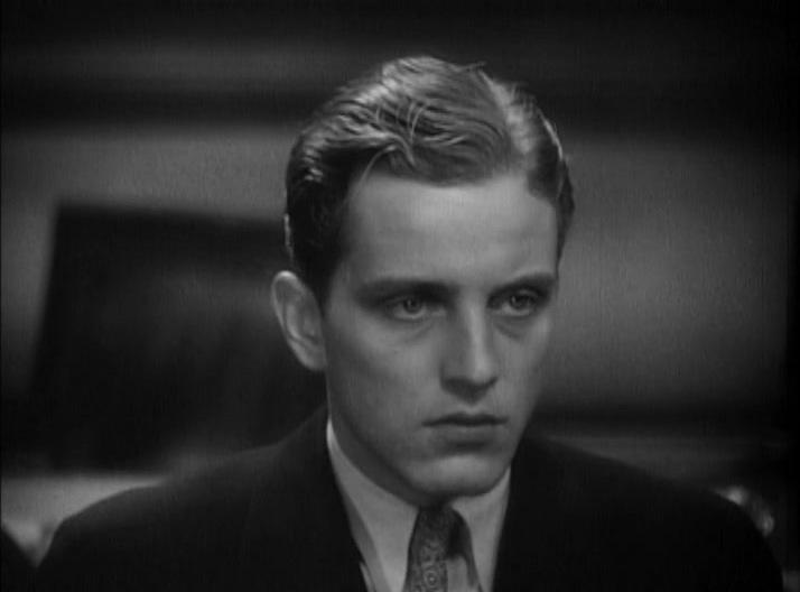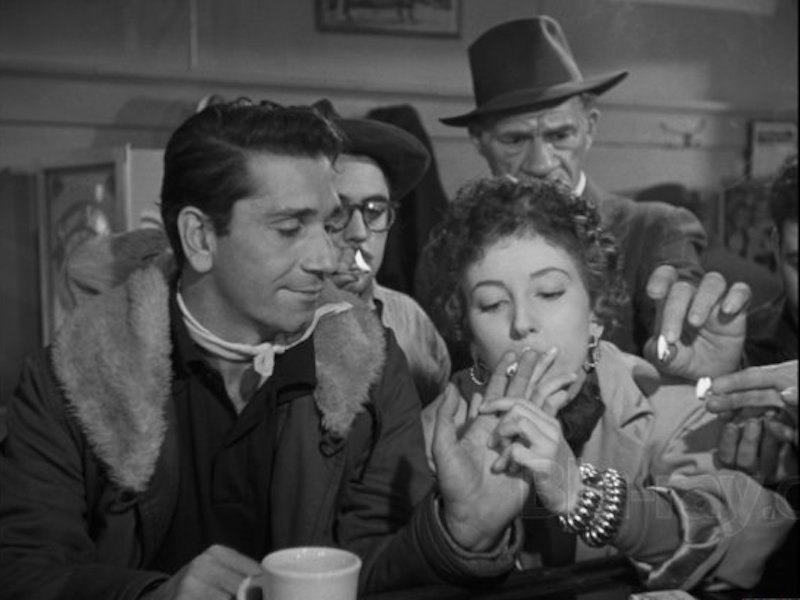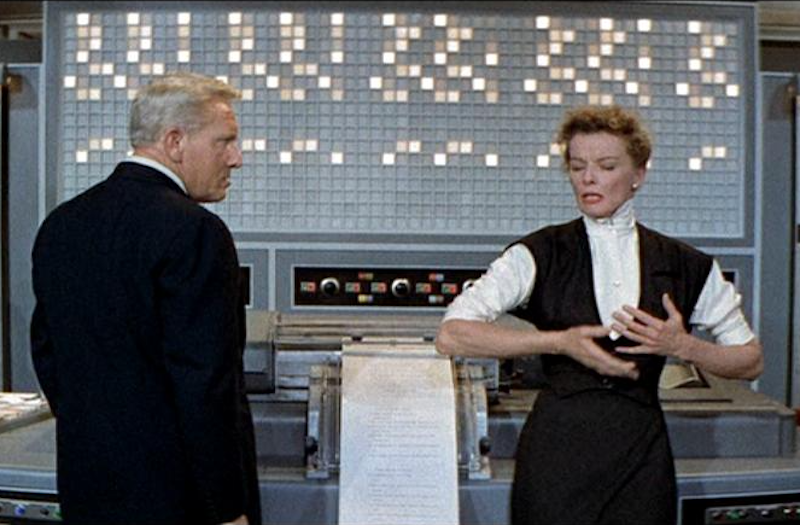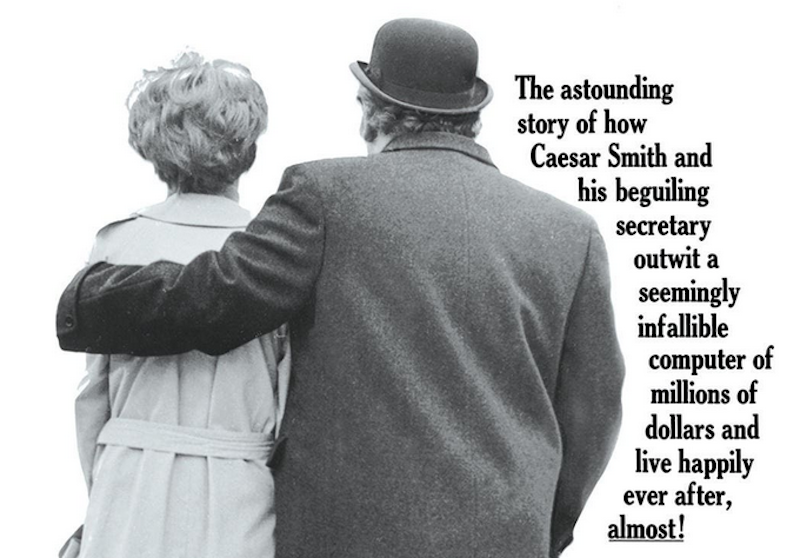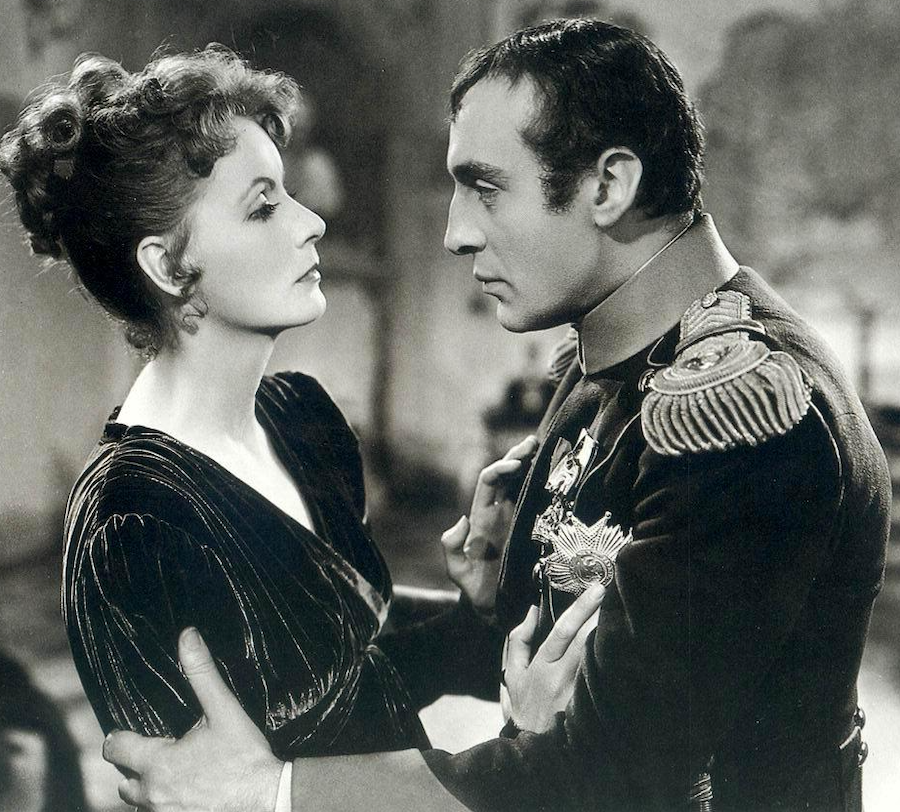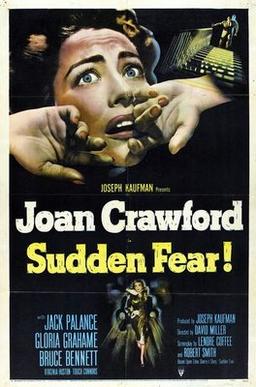"The attraction here isn't really the cultural relic/curiousity value, it's the variation of the old man meets woman, they hate each other, they clash with sparkling dialogue and then end up together 'til death they do part. This bit has been done to death in Hollywood's 100+ year run, but it can be freshened and redeemed if the scriptwriter is up to the job."
Category: TCM
Movie Night: Born Yesterday
"Born Yesterday is pretty fabulous. At least until it sinks in that it's just as applicable today (especially today!) as it was in 1950. In that year, it could have been warning against the House Un-American Activities Committee, which ultimately wrecked lives, but failed. But today, the movie is depressing when you realize that Broderick Crawford's Harry Brock is in charge of the country, the Senate and the judiciary and is sitting in the White House tweeting."
Movie Night: The Big Clock
"Regardless of whether you saw it then as scandalous that such perversions were being exhibited in public theaters or whether you see it now as being stereotypical, offensive and overly focused on white, male, straight actors and queer panics and Italian stereotypes, to wit ... offensive!! ... there is much to actually be loved here."
Movie Night: The Yellow Rolls Royce
"... this is probably the granddaddy of all product placement movies, far more egregious than even Joan Crawford's conspicuous scattering of Pepsi bottles in Strait Jacket ..."
Movie Night: Sweet Charity
"The songs and dances, Shirley MacLaine and Cita Rivera, et al, were great; it's just the stuff in between that is less than satisfying."
Movie Night: A Cry in the Night
"Whatever the novelty of seeing goodie two-shoes Perry Mason as a Peeping Tom/Kidnapper, it's Carol Veazie who is the standout."
Movie Night: The Ritz
"Regardless of whether you saw it then as scandalous that such perversions were being exhibited in public theaters or whether you see it now as being stereotypical, offensive and overly focused on white, male, straight actors and queer panics and Italian stereotypes, to wit ... offensive!! ... there is much to actually be loved here."
Movie Night: An American Tragedy
"Basically, amoral social climber from poor background seduces poor factory girl, gets her pregnant, wants to marry a rich socialite and so kills poor factory girl by smashing her in the head with his tennis racket and dumping her body in a lake, fakes a canoe accident, trips self up by being basically an idiot, dies in electric chair after mercy is refused by Governor Charles Evans Hughes."
Movie Night: Thieves’ Highway
"Thieves' Highway is a classic Noir tale of truckers and apples and greed and sex and San Francisco and California and highways and death."
Movie Night: Desk Set
"Not only is it hilarious, it has fabulous midcentury (ugh, that word) interiors, jokes only librarian/book/research nerds understand, an awesome supporting cast including EMERAC and Kate gets to get blotto and talk about the "Mexican Avenue Bus" (the Lexington Avenue Bus, that is)."
Movie Night: Hot Millions
"There's a lot more than just smiles to recommend this one–ts droll English humor, its glimpse at fashions and designs and trends of 1968, the fantastic acting of everyone, including the performance of Bob Newhart, whose movie outings are often forgotten, the sarcastic wit and the satire–it's a long list and will need a second viewing to get it all."
Movie Night: Conquest
"The film itself is fairly representative of the period and shows how far ahead of her time Garbo was ... that she could shine in spite of rather stilted dialogue, in a non-native language shows just how great an actor she was at the height of her career. It wasn't bad, and I might have another look under certain conditions, but I probably wouldn't buy it for the DVD collection, unless Criterion gets hold of it."
TCM Tonight: Summer Under the Stars – Joan Crawford
Of COURSE we had to watch some Joan tonight. Not taking time to behold the wonder that is our patron saint, Lucille LeSueur, would be anathema, blasphemy, time wasted! First up was 1952’s Sudden Fear — Joan with Jack Palance, Gloria Grahame, Bruce Bennett, Virginia Hudson and Mike “Touch” / “Mannix” Connors. David Miller directed. Playwright...

